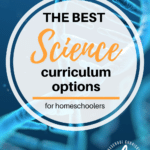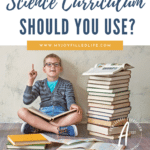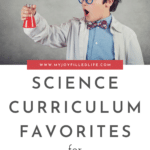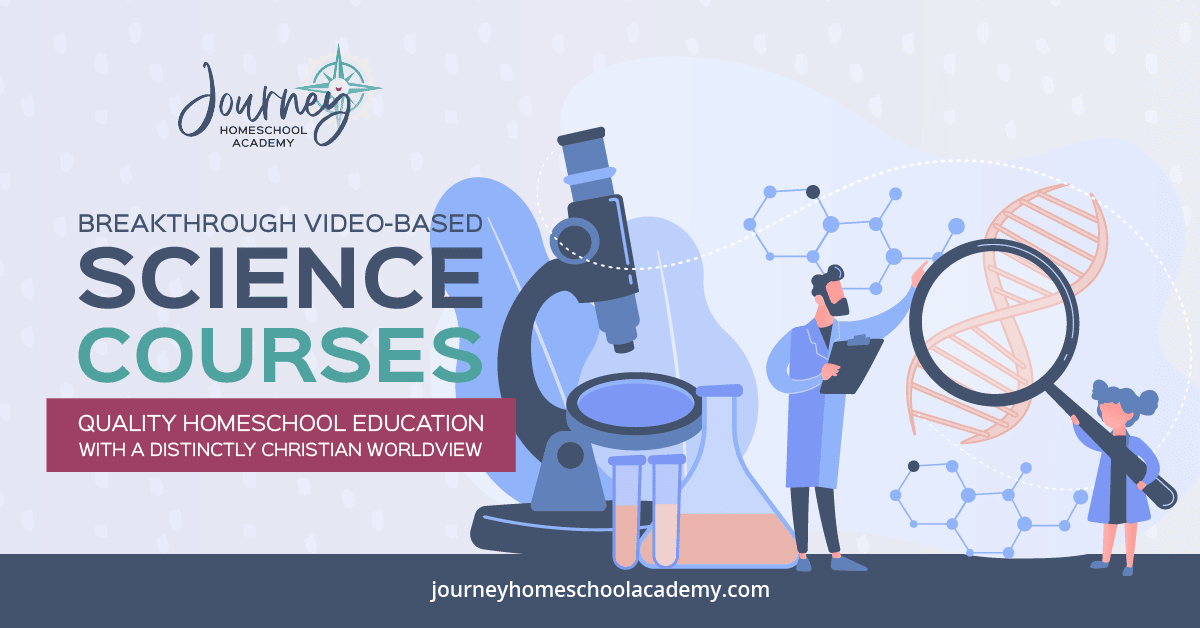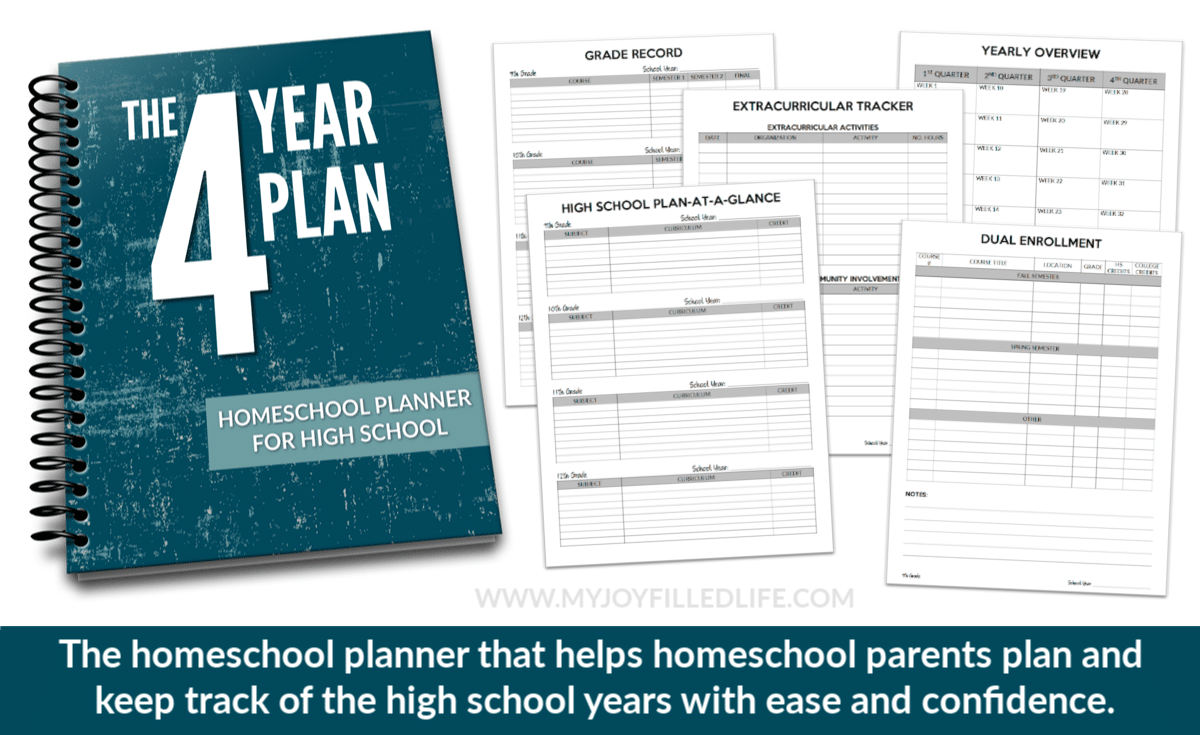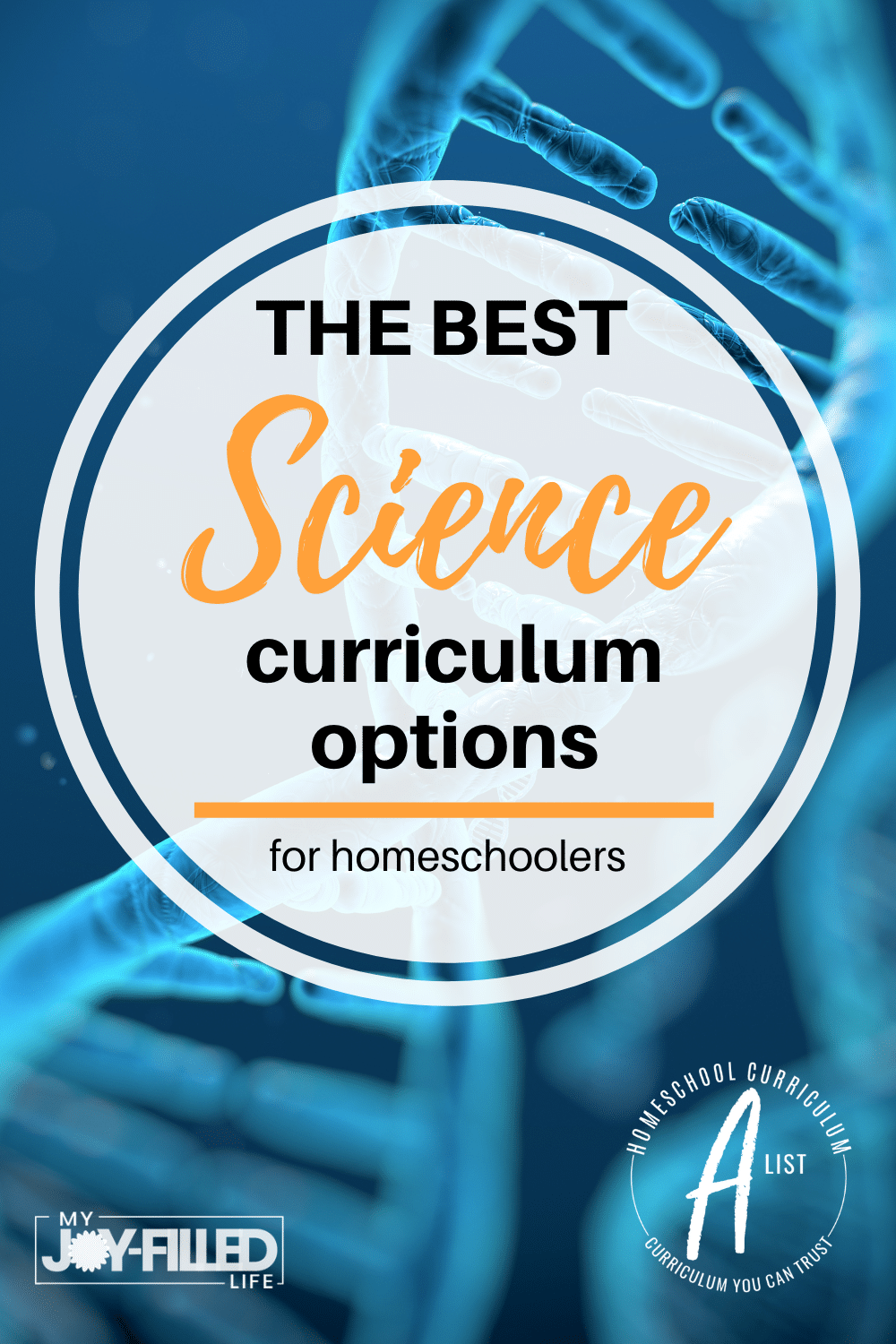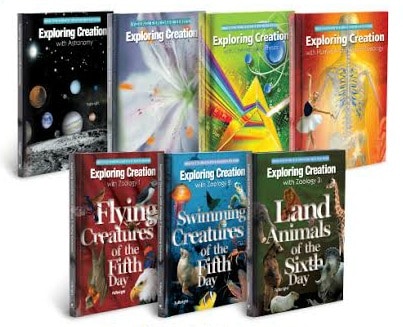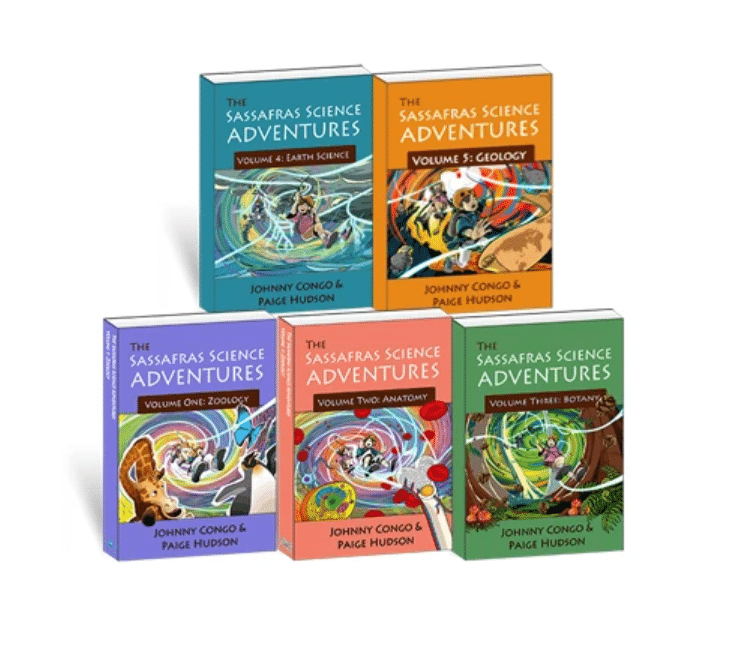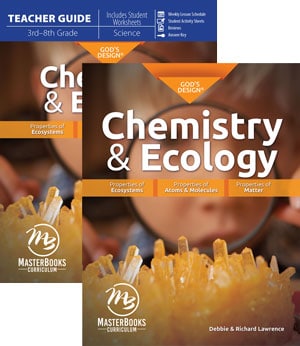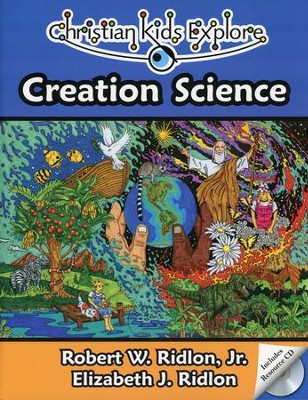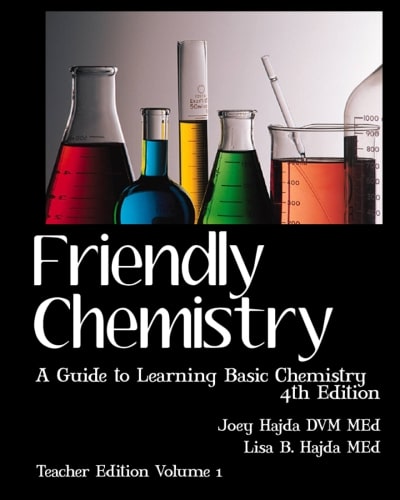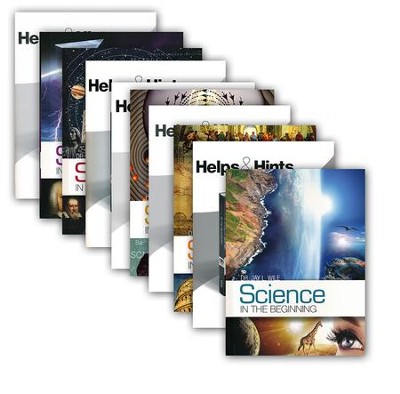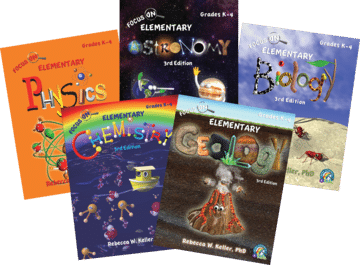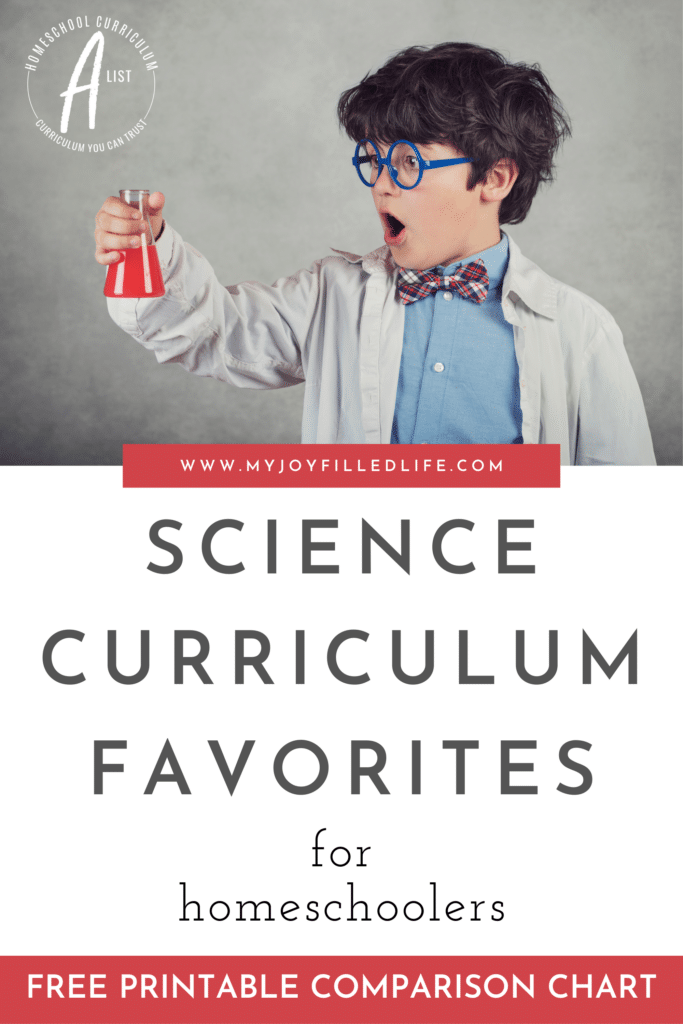Science was one of my favorite subjects in school. I enjoyed it in elementary school, high school, and even in college. I loved it so much that I want to college and got my degree in nursing.
Teaching it to my kids is a different story. Most of them are not big science lovers like I am.
So choosing a curriculum for science has proven a little bit harder than I anticipated because what I would ideally choose, isn’t necessarily what works best for my kids.
With that said, we have tried, and I have researched, many different science homeschool curriculums over the past 14 years! There are so many great options out there to teach science in your homeschool. So many, that it can be pretty overwhelming and stressful trying to make the best choice for your kids.
But what is the best?
There is no one-size-fits-all when it comes to homeschool curriculum. One family’s favorite curriculum might be a failure in your home. What works for one child (even within the same family) might not work for another.
So how do you choose?
My best advice is to do your research, narrow your choices down to your top three, do even more in-depth research on those three, pray, and then make your decision.
And even after all of that, you still might choose something that isn’t the right fit, and that’s okay! That’s part of the process. Sometimes it takes a little trial and error to find what works best for you and your child(ren).
It’s okay to ditch what’s not working and try something else. Thankfully, many homeschool companies offer free trials and free samples for you to try out before you buy, so be sure to take advantage of these and use them before you invest your money into the curriculum.
This curriculum post is all about science and what I feel are the top 12 science curriculums available for homeschoolers. As a homeschool mom of 8 for going on 15 years, and also a homeschool curriculum reviewer, I’ve used, tried, researched, and explored a lot of homeschool curriculum.
We’ve been homeschooling for 14 years now, and still have many more to go (our youngest is 5 and maybe we’ll be blessed with more). The last couple of years have brought a lot of change to our family and homeschool, including graduating one child, sending two kids to a university-model Christian school, and changing up some of our curriculum. So that means doing even more curriculum research and exploration!
I’m hoping to save you all some time and energy and do some of the legwork for you. Since I’m already doing my own research, why not share what I’ve found and what I believe to be the top science options available?
Below you’ll find a breakdown of what I feel are the best science curriculums on the homeschool market – I’m calling it the Homeschool Curriculum A-List! I’ll be creating more lists for other subjects as I do my own research for my own family. Check out the Math A-List here!
You’ll also find a printable comparison chart of these top 12 science curriculums below. Once you narrow down your options, you can really start digging into your top choices and doing your own research. To help you with that, just click over to the publishers website, check out the reviews I’ve linked to from some of the top homeschool bloggers, and use these curriculum comparison sheets to take notes.
A note on the prices listed – these are the suggested retail prices and/or the regular prices listed on the publishers’ websites, but in some cases you may be able to find the curriculum for cheaper through places like Christianbook.com or Rainbow Resource Center or you may even be able to find some good used copies.
The Best Science Curriculum Options for Homeschoolers
Apologia
Grade level: K – 12th
Price:
$42 – $72 for textbook
$29 – $39 for notebooking journal
Additional supplements also available
Consumable: notebooking journals are consumable
Prep Time: Medium
Teacher Involvement: Medium
*Christian
Apologia is an award winning, creation-based science curriculum that homeschoolers have trusted for years. Textbooks are written in a conversational style, and the elementary texts have a Charlotte Mason feel.
Texts include instructions for a variety of hands-on projects, demonstrations, and experiments. Student notebooks are available for all grade levels.
When students reach the middle school and high school levels of science, student notebooks help them to become more independent in their studies and include flexible schedules, places to answer questions in the textbook, lab sheets, and more.
Apologia offers 8 elementary courses, 2 middle school courses, and 9 high school courses (including advanced options).
Homeschool Approach: Traditional; elementary – Charlotte Mason feel, Eclectic
Learning style(s) suited for: visual, auditory (with some resources), kinesthetic
Format: Textbooks, notebooks, videos (optional), MP3 audio (optional)
Read/Watch reviews from – My Joy-Filled Life (YouTube video), Just a Simple Home, Family-Style Schooling, Purposeful Homemaking, Raising Arrows, 4 One More, The Happy Housewife
Journey Homeschool Academy
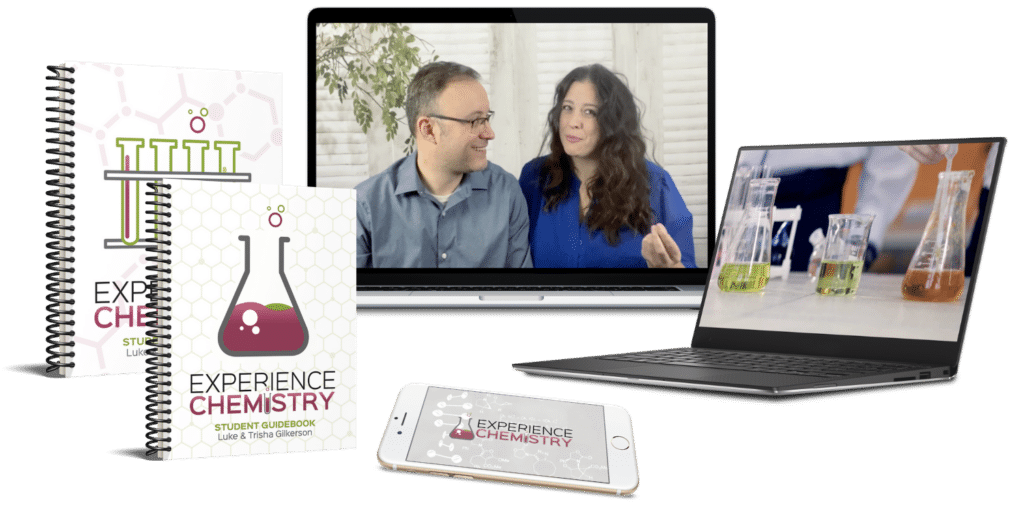
Grade level: 1st – 12th
Price:
Elementary: $129 (for entire family)
Middle school: $179 (per student)
High school: $279 (per student)
*discounts for additional students available
Consumable:
Middle & High School: Yes (access for a year)
Elementary: No (lifetime access)
Prep Time: Low
Teacher Involvement: Low to Medium (for elementary)
*Christian
Journey Homeschool Academy offers online homeschool courses in the following areas – Biology, Astronomy, Chemistry, and Earth Science.
These course provide a high-quality, hands-on, engaging science experience. The online courses include engaging video lessons, comprehensive quizzes, lab, project & reading assignments, research questions, and lesson outlines.
Homeschool Approach: Eclectic, Charlotte Mason (when using the living book list)
Learning style(s) suited for: visual, kinesthetic
Format: online, videos, labs & hands-on activities
Read/Watch reviews from – My Joy-Filled Life (YouTube Video), My Full Heart, Homeschool & Humor, The Delight Directed Homeschooler, No Desk Required
Sassafras Science
Grade level: K – 6th
Price: Books are $16; teacher guide is $21; logbook is $12.50; sets and eBook versions available
Consumable: Logbooks are, unless using digital version
Prep Time: Medium
Teacher Involvement:
Medium – High
*Neutral
The Sassafras Science series is a living book based study of science for elementary students designed to be fun. You and your child will follow along on the science adventures of the boy/girl twin duo – the Sassafras Twns.
The adventures books can be purchased on their own (they make great read alouds as is), or you can add other products like the guidebook and logbook to make a complete science program.
After reading from the adventure book, students make notebook pages and do hands-on science demonstrations and activities. Lapbooks are also available.
There are currently 6 books available, all covering a different science topic, with 2 more planned for future release.
This curriculum is faith neutral and focuses on basic facts, avoiding topics where there is religious debate.
Homeschool Approach: Charlotte Mason, Eclectic
Learning style(s) suited for: auditory, kinesthetic
Format: living book, notebooking, hands-on activities
Read/Watch reviews from – Table Life Blog, Nature Homeschool, Research Parent, Homeschool Giveaways, Teach Beside Me, Beat of Our Drum
Sonlight
(not upper levels)
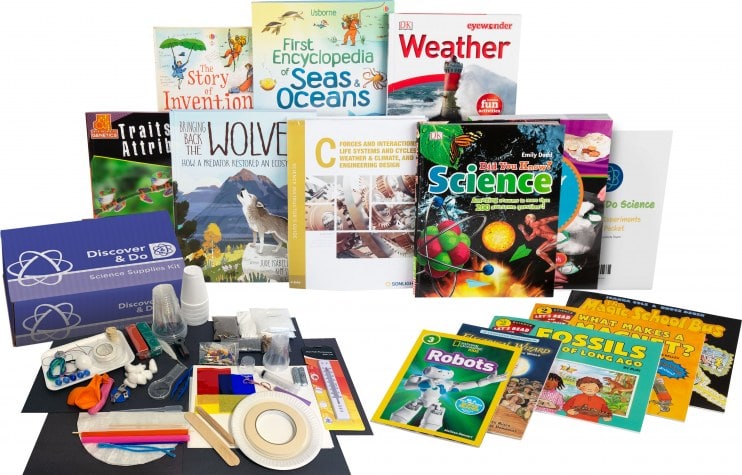
Grade level: K – 10th
Price: programs range from $150 – $296
Consumable: activity sheets are
Prep Time: Medium
Teacher Involvement:
Medium – High
*Christian
Elementary students study a variety of topics each year. With great books, hands-on activities, and experiments, this curriculum will appeal to a variety of children. Sonlight also offers multiple supplemental materials for your students’ science studies.
The parent’s guide lists all the materials you will need, and lays out exactly what your students need to do each day. With a little prep before, you’ll be ready to go. Sonlight even has kits so you’ll have everything you need to do the experiments. Discover & Do DVDs lead you through the experiments.
Homeschool Approach: Charlotte Mason, Eclectic
Learning style(s) suited for: visual, auditory, and kinesthetic
Format: living books, hands-on activities & experiments
Read/Watch reviews from – The Purposeful Nest, Valerie Write Now, Raising the Extra Ordinary
NOEO Science
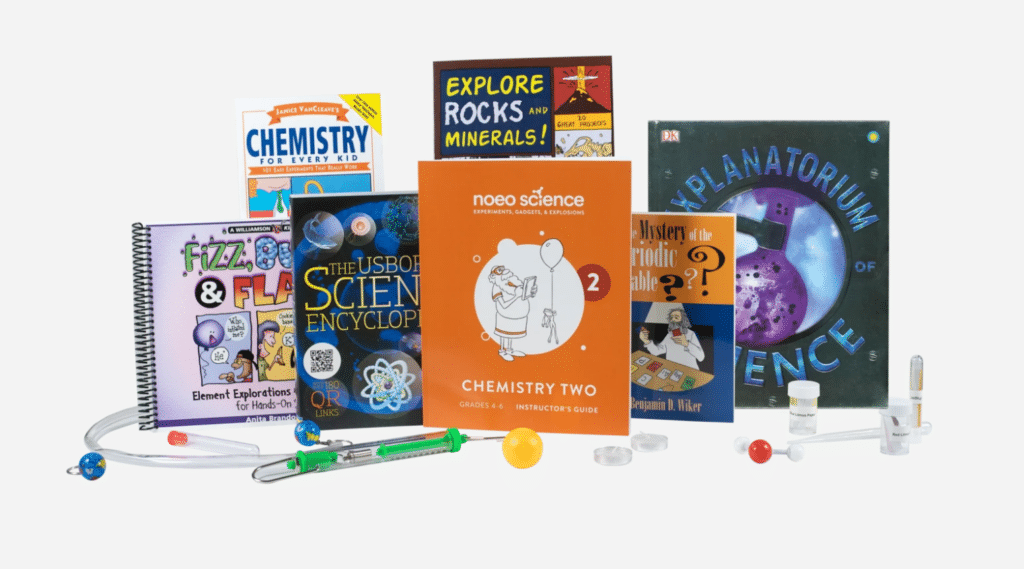
Grade level: 1st – 8th
Price:
Instructor’s guide is $30;
packages range from $210-$311
Consumable: Lab manual templates can be copied for you students
Prep Time: Low
Teacher Involvement: Medium
*Neutral
NOEO is a complete science curriculum that is designed for you to open and be ready to go with minimal prep. Each box contains an instructor’s manual and lab manual, activities packaged with the materials, and living books. All you need are common household supplies.
Assessment of student learning is done naturally through the use of narration and notebooking.
It has three different levels and for each level you can choose to study physics, chemistry, or biology (except there is no biology for level 3 at this time).
Homeschool Approach: Charlotte Mason, Eclectic
Learning style(s) suited for: visual, kinesthetic
Format: living books, hands-on activities, notebooking
Read/Watch reviews from – The Organized Homeschooler, Hip Homeschool Moms, Our Home on the Range, Homeschooling with Grace
God’s Design Series
Grade level: 1st – 8th
Price:
Books for 1st-2nd are $40;
Books for 3rd-8th are $90
Consumable: books for 1st-2nd are consumable
Prep Time: Low – Medium
Teacher Involvement: Low – Medium
*Christian
The authors of God’s Design Series want to show students how science supports the Biblical creation account as told in Genesis. It uses a traditional approach to teach science that includes reading from the text; activities and challenges; and assessment questions, quizzes and tests. The two books in the beginners series for 1st- 2nd grades feature colorful pictures, activities, worksheets, Scripture memorization, writing practice, and more.
Lessons are designed to take 45 to 60 minutes a day, 4 days a week. Although some prep time is required to get materials together, the teacher’s guide includes a supply list for any materials needed.
There are a total of 6 titles/courses to choose from that will provide a full year of study.
Homeschool Approach: Traditional
Learning style(s) suited for: visual, auditory, kinesthetic (The teacher’s guide addresses how to use the curriculum with each type of learner.)
Format: texbook, workbook, hands-on activities
Read/Watch reviews from – Proverbial Homemaker, The Brave Homeschooling Mama, Bless Their Hearts Mom
Christian Kids Explore Science
Grade level: 1st – 8th
Price: $30
Consumable: No
Prep Time: Medium
Teacher Involvement:
Medium – High
*Christian
Biology or Earth and Space are both designed for grades 1 – 6. They can be used with multiple elementary grade levels at the same time. The include the lesson, activities, coloring sheets, review sheets, creative writing assignments, things to memorize, and a supplemental book list to help you students dig deeper.
Chemistry, Physics, and Creation Science were designed for grades 4 – 8 to prepare them for high school science. Each includes lessons, hands-on activities, unit reviews, and a supplemental book list to help you students dig deeper.
Older printings include a CD, while the newest editions have a digital download filled with everything you will need as a teacher. There are daily lesson plans, lists of materials needed, a literature study guide, and all of the reproducibles you will need.
Homeschool Approach: Traditional
Learning style(s) suited for: visual, kinesthetic
Format: textbook, hands-on activities
Read/Watch reviews from – Homeschool Giveaways, Weird Unsocialized Homeschoolers, I Choose Joy, Clarissa R. West, Heart and Soul Homeschooling
Friendly Sciences
Grade level: 8th – 12th
Price:
Starts at $60, up to $100
Additional (optional) resources also available
Consumable: Yes, workbooks and tests are
Prep Time: Medium
Teacher Involvement: Low – Medium
*Biology has a Christian & Secular option; other courses are neutral
The Friendly Science series includes courses in Physical Science, Biology, and Chemistry. Although it uses a textbook approach, it also includes games, challenges, activities and lab experiences according to what subject is being studied.
The student textbook for biology is offered from both a Christian worldview perspective and a secular version. No microscope or hard to find materials are needed to complete the labs.
You will need the teacher’s editions which include test answers, teaching tips, and more.
Homeschool Approach: Eclectic, Traditional
Learning style(s) suited for: visual, auditory, and kinesthetic
Format: textbook, workbook, experiments/activities
Read/Watch reviews from – 4 One More, Humility & Doxology, A Slice of Homeschool Pie, The Curriculum Choice, Faith, Family, & Fridays
Berean Builders
(Science in History)
Grade level: K – 6th
Price:
Books – $39
Sets – $44
Optional notebooks – $20
Consumable: Yes, notebooks are
Prep Time: Medium
Teacher Involvement: Medium to High
*Christian
The Science in History series is written by Dr. Jay Wile and offers 5 different science courses that teaches science with historical context.
You can teach all of your elementary children together using these courses; one course provides one year of instruction.
Each of the 90 lessons in a course includes an experiment or activity, a short reading in the text, and 3 different levels of review questions. Optional notebooks are available for older students, as well as a Helps & Hints book for teaching helps, review question answers, and optional tests.
Homeschool Approach: Eclectic, Classical
Learning style(s) suited for: visual, kinesthetic
Format: textbook, experiments/activities, notebooking
Read/Watch reviews from – Lextin Eclectic, Homeschooling 4 Him, Home on the Range
Novare Science
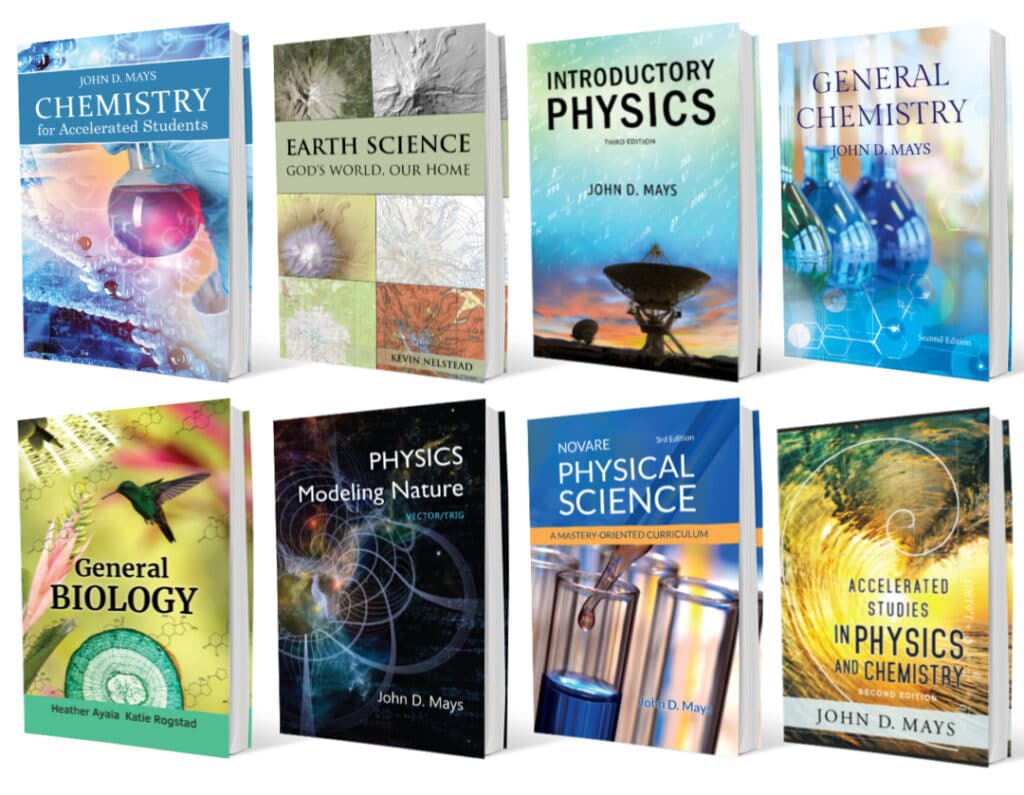
Grade level: 7th – 12th
Price: Textbooks begin at $75; Programs begin at $112
Consumable: No
Prep Time: Medium
Teacher Involvement: Low – Medium
*Christian
Novare science is based on three core principles—wonder, integration, and mastery. They believe science study begins with wonder, should not be studied in isolation from other subjects such as math, history, and writing, and of course—it can be mastered.
This classical curriculum is written from a Kingdom perspective. When it comes to teaching evolution, they say “Novare’s future biology texts (Life Science for middle school, and General Biology and Microbiology for high school) will include a complete presentation of evolutionary theory in a manner appropriate to the grade level of each text” going on to explain they won’t “advocate in favor of the acceptance or rejection of evolution. They will present the current state of the scientific consensus as best it can be done at each level.”
Homeschool Approach: Traditional, Classical
Learning style(s) suited for: visual, kinesthetic
Format: textbook, quizzes and tests, experiments
Read reviews from – Real & Quirky, Family, Faith, & Fridays, Mama’s Coffee Shop, Day by Day in Our World
Real Science 4 Kids
Grade level: K – 8th
Price: Building Blocks Program – Bundles begin at $139
Focus On – Bundles begin at $117
Consumable: Yes, workbook & notebooks
Prep Time: Medium
Teacher Involvement: Medium – High
*Neutral
Read Science 4 Kids is designed to be fun! They offer two different programs, Focus On and Building Blocks.
The Focus On program offers five semester long, single-subject unit studies. These units introduce kids to chemistry, biology, physics, geology, and astronomy. There are two levels available: K–4 (elementary) and 5–8 (middle school). This program uses a block approach where kids focus on one subject at a time.
The Building Blocks series is designed to be a rigorous, yearlong program for grades K–8. It uses a spiral approach where each of the subjects—chemistry, biology, physics, geology, and astronomy—are seen repeatedly over the months and years you use it.
Homeschool Approach: Eclectic, Traditional
Learning style(s) suited for: visual, kinesthetic
Format: textbooks, notebooks, hands-on activities/experiments
Read/Watch reviews from – Ticket to Learning, Learning from Life, Chasing Those Moments, Adventures in Mommydom, Balancing it All While Homeschooling 6, Starts at Eight
The Good and the Beautiful
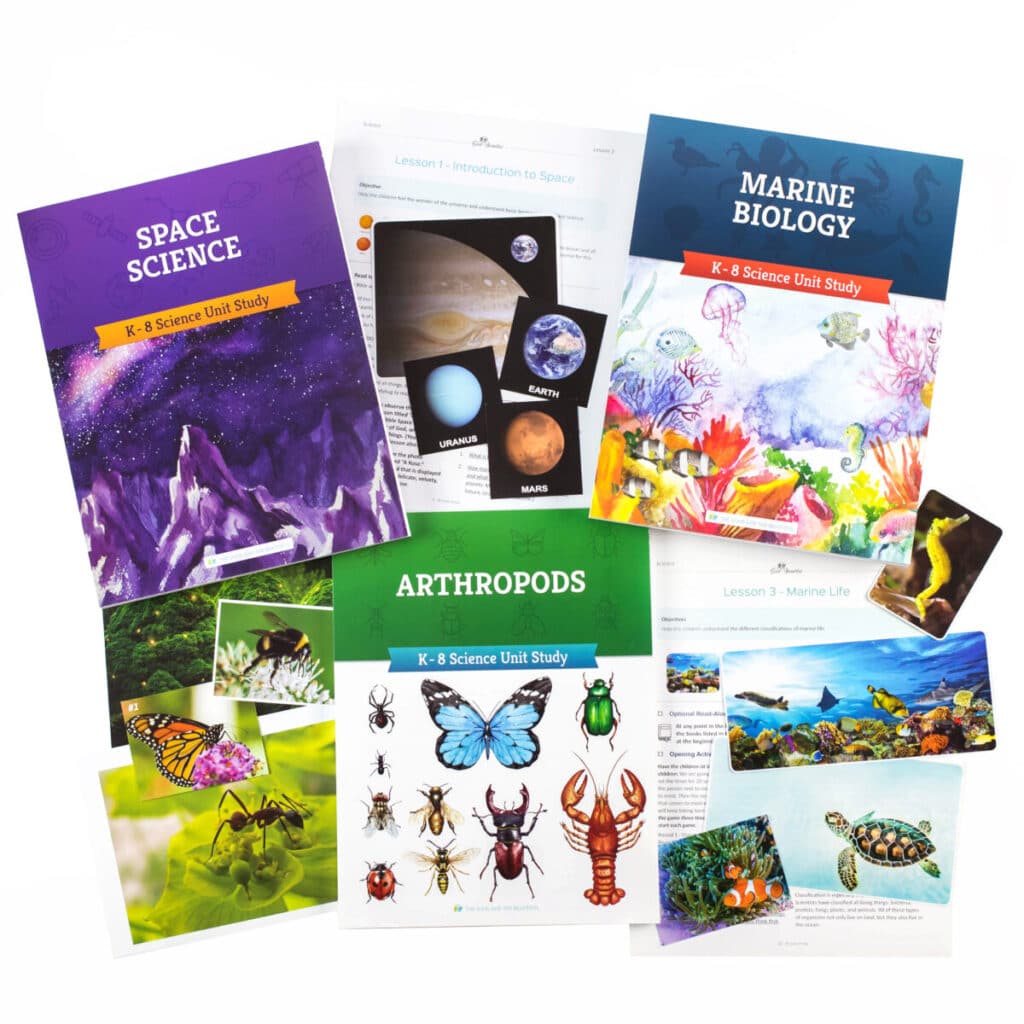
Grade level: K – 8th
Price: $5 – $33
Consumable: No, can print or copy activity pages
Prep Time: Low – Medium (once initial prep is done)
Teacher Involvement: Medium
*Christian
The Good and the Beautiful science and health unit studies are created to be used as a family for kids in grades K-8.
There are many units to choose from – such as Energy, Botany, Mammals – and at a pace of 2 lessons per week, you can complete all unit studies in 3.5 years.
You can use the studies in any order and they each vary in length, so you can complete several studies in one school year.
Students will create a science journal to hold all of their completed work and each lesson includes things like hands-on activities/experiments, vocabulary, activity pages, reading, and more.
Homeschool Approach: Unit studies, Eclectic
Learning style(s) suited for: visual, kinesthetic
Format: digital PDF download or printed packet
Read reviews from – Simple Living Mama, The Berning Bunch, Beautiful Minutiae, Mommyplannerista
Now that you have seen what has made the Homeschool Curricuum A-List for science, you might be wondering which ones my family has used and which ones I have the most experience with.
Our long-time science curriculum favorite is Apologia, especially for the elementary grades. This has been a really great curriculum for our large family because I’m able to teach most of my kids using the same course. Apologia’s elementary courses are designed for grade K-6 (and you could even stretch some of them to 7/8 grade) so I can realistically teach 4 of my kids together. It’s just an overall, well-done science curriculum that includes conversational text, notebooking, and hands-on projects and experiments. As we moved into the middle and high school years, I found Apologia to not be as user-friendly and required too much of my time for teaching and prep work, which as my kids get older, I prefer them to work more independently.
Which brings us to Journey Homeschool Academy! This has been great for my older kids because it does allow them to work independently! The online platform and the course material are organized and put together so well that my kids need minimal help from me. The video lessons are great (so I don’t have to teach) and they even provide videos to help with the lab work!
The Friendly Science series is another one that allows for kids to work independently. I currently have a 10th grader using the Chemistry course, mostly on his own. I help with some of the experiments (but there aren’t too many) and I do the grading. We also opted to get the video instruction which I think is a big help in comprehending the material better and that also frees up more time for me to work with the younger kids. Note – I would have preferred he use the Journey Homeschool Academy chemistry course because we liked the biology course, but they did not offer Chemistry at the time we needed it. They do offer it now though!
The Sassafras science series is so fun! My kids really enjoyed the story format of the course (I would even catch my older kids listening in from time to time) and wouldn’t want me to stop reading. The stories are great in that they keep the kids interested and wanting more. On top of the stories, we added in some notebooking, some experiments here and there, and many of the additional books they recommend. I love these books so much that I’m considering just using the books as read alouds (because we are big time Apologia fans and will likely continue using that for elementary science).
We used NOEO for a short time at the beginning of our homeschool journey. It is very user-friendly and I really like the living book aspect of it, but my kids at the time, just weren’t into notebooking.
I have always had an eye for Sonlight, so I’m considering the Kindergarten level with my youngest next year. Again, I like the living books, so I’m envisioning being able to snuggle up with my baby and read neat science books together. But we shall see.
So what will we be using in our homeschool next year for science? Let’s see….
- 11th grader – Apologia’s Exploring Creation with Physics (at co-op)
- 9th grader – Apologia’s Exploring Creation with Biology (at unversity-model school)
- 7th grader – Apologia’s Exploring Creation with General Science (at university-model school)
- 5th graders – undecided – probably an Apologia course or we may try one of the elementary courses from Journey Homeschool Academy (we have only used the high school courses)
- 3rd grader – undecided – probably an Apologia course or we may try one of the elementary courses from Journey Homeschool Academy (we have only used the high school courses so far)
- Kinder – Sonlight or just have her do whatever her brothers are doing (which is probably what will happen)
What science curriculums have you used? Which one is your favorite?
Are you in the market for a science curriculum? What qualities and characteristics are you looking for in a science curriculum? Do you have any questions about the ones listed above?


